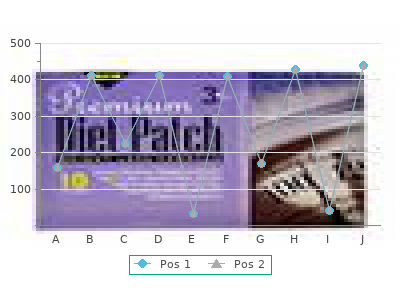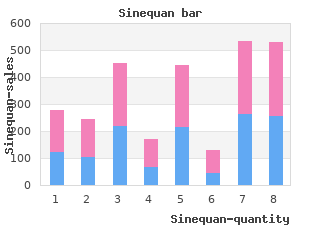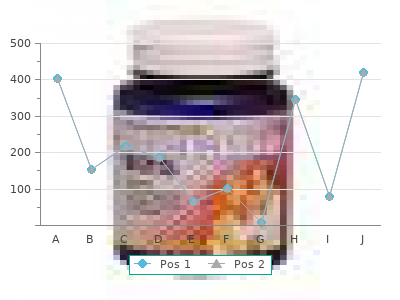Sinequan
By V. Gembak. University of Virginia.
Misconceptions about Dissociative Identity Disorder Maria purchase sinequan 10mg otc, shares her first-hand account of living with Dissociative Identity Disorder discount 25 mg sinequan. For Maria, enduring a very traumatic childhood and even an unexplained medical procedure seems to have triggered her disorder. Diane talks about her story of 21 years being isolated by her parents and mentally, physically, emotionally and sexually abused. Childhood Sexual Abuse and Dissociative Identity Disorder Maggie Claire was sexually abused by her uncle. She was sometimes given drugs in order to shot pictures or her without clothes. This is where her other personalities began to appear. What happens to girls with ADHD when they become adults with ADHD if much of the focus is on men with ADHD? That is the concern of Terry Matlen, ACSW who is a psychotherapist, consultant, writer and coach, specializing in adult attention deficit disorders. An ADHD coach is a professional trained to guide and support a person in overcoming the challenges of living with ADHD at work, at school, and at home. Adult ADHD Video: Why Some ADHD Adults Get Poor Treatment Ms. Adults with ADHD continue to suffer from concentration problems, just like when they were ADHD kids. Facing ADHD symptoms in daily life can lead to low self-esteem and depression. Douglas Cootey, talks about his experience with ADHD and depression. Sharing Your Mental Health Story +?? Band Back Together Known as Aunt Becky to the Internet, Sherrick Harks created a website called and invites everyone suffering from trauma, sickness, mental illness or abuse to share their story online. Kendra talks about how binge drinking during her college years did not seem to be out of the ordinary, even though she experienced black outs during this time. She realized she had a problem when she began experiencing extreme panic attacks that land her in the hospital. Kendra experienced a list of comorbid disorders due to her excessive drinking. Weiss, co-author of " Cybersex Exposed: Simple Fantasy to Obsession " was our guest on the HealthyPlace Mental Health TV Show,; Mr. Weiss, an acknowledged professional in the assessment and treatment of persons with addictive sexual disorders and sexual offending, discussed these topics and more in this video interview. A young mom talks about her struggle to stay sober while raising small children. She discusses tips to stay sober during the holidays or any other parties and gatherings. Urschel talked about a new, revolutionary, science-based program to recover from addictions. Uschel will talk about his bestselling book on the program. Healing the Addicted Brain: The Revolutionary, Science-Based Alcoholism and Addiction Recovery Program Parents of Addicts and How They Can Best Help the Addict What should parents do to help their child with their addiction. Our guest, Catherine Patterson-Sterling talked about the things that parents do right or do wrong, when trying to help their addicted child. Jonathan Daugherty, talks about his experience with sexual addictions and the negative effects it had on his private life. He also gave tips on how to look for help for a sexual addiction. Living with depression, major depression, the most severe kind of depression may best be described as a lonely, isolating, hopeless existence. Left untreated, it can lead a person to take desperate measures +?? anything to escape one more hour, one more day of feeling +??like this. Melanie Greenberg has combined the Eastern-based practice of Mindfulness with cognitive behavior therapy to create a powerful program that helps her patients manage their mental health problems. How giving other compassion and hope can get us through our own hard times. Stephen Post is the professor of preventive medicine and director of the center for medical humanities, compassionate care, and bioethics at Stony Brook University. Recognizing that life is often difficult may help people acquire the strength to embrace their daily challenges. Michele Howe, talks about how to cope and manage those difficult situations that life brings you.

Trudy Carlson: If you can find a doctor who will listen carefully to all of your concerns cheap 10mg sinequan with visa, you have taken a major step forward purchase sinequan 25mg fast delivery. Mood stabilizers, such as lithium and anticonvulsants, are often prescribed. You may need to go to a specialist to get a final diagnosis. David: Not only is it tough on kids Trudy, but for parents who have children with mood disorders it can be extremely trying. And what would you recommend to parents here tonight to help themselves deal with the stress? Families of children with bipolar illness need the same things that families with children with diabetes need. They not only need medication, they need to learn as much about the illness as possible. They also need the support of others who have this condition. They need to structure their lives to avoid situations that make their illness worse. Most of all, they need to know that they are not alone, that this illness is not their fault. And there is nothing like talking with others who have been there. Anything that parents can do to reduce the stress in their lives, the better. Marile: I have bipolar and my stepson is at least ADHD. He just got kicked out of school for behavior problems. I know that most of his problems were related to the medicine, but our family is still disrupted! We are going to go to a new medicine doctor to see what she can do for him. Trudy Carlson: My husband has bipolar, but we did not know this for some time. He is bipolar II, so his symptoms were predominantly depression and the hypomania was very mild. So, we did not understand what was going on with our son for some time. I realized that he had a learning disability, but the school system did not. Now, all of us would like to teach the school systems about bipolar. I think I was one of the few people who recognized this. However, I have very great problems with the social aspect. Do you have any suggestions as to how I can go about being with others? It gets very lonely and that only depresses me further. Trudy Carlson: This social issue is a terrible problem. In the book I wrote on Learning Disabilities, I suggested the formation of a social club for kids. They need training and experience in social situations. I think it is about time that kids experience that kind of support. Bipolar kids have so many symptoms in common with ADHD kids that a group for ADHD would be an appropriate place for them. Burns has a wonderful workbook called: Ten Days to Self Esteem. In that workbook, you will learn many cognitive behavioral techniques that will help you. Noele: Yes, but even with special school and medication some children feel alone and almost like they hear someone whispering that they are different and crazy.

No gender-associated difference in fluoxetine pharmacokinetics was observed discount sinequan 10mg without a prescription. Similar ranges of fluoxetine and norfluoxetine plasma concentrations were observed in another study in 94 pediatric patients (ages 8 to <18) diagnosed with major depressive disorder buy sinequan 75mg lowest price. Higher average steady-state fluoxetine and norfluoxetine concentrations were observed in children relative to adults; however, these concentrations were within the range of concentrations observed in the adult population. As in adults, fluoxetine and norfluoxetine accumulated extensively following multiple oral dosing; steady-state concentrations were achieved within 3 to 4 weeks of daily dosing. Adult - The efficacy of Prozac for the treatment of patients with major depressive disorder (?-U18 years of age) has been studied in 5- and 6-week placebo-controlled trials. Prozac was shown to be significantly more effective than placebo as measured by the Hamilton Depression Rating Scale (HAM-D). Prozac was also significantly more effective than placebo on the HAM-D subscores for depressed mood, sleep disturbance, and the anxiety subfactor. Two 6-week controlled studies (N=671, randomized) comparing Prozac 20 mg and placebo have shown Prozac 20 mg daily to be effective in the treatment of elderly patients (?-U60 years of age) with major depressive disorder. In these studies, Prozac produced a significantly higher rate of response and remission as defined, respectively, by a 50% decrease in the HAM-D score and a total endpoint HAM-D score of ?-T8. Prozac was well tolerated and the rate of treatment discontinuations due to adverse events did not differ between Prozac (12%) and placebo (9%). A study was conducted involving depressed outpatients who had responded (modified HAMD-17 score of ?-T7 during each of the last 3 weeks of open-label treatment and absence of major depressive disorder by DSM-III-R criteria) by the end of an initial 12-week open-treatment phase on Prozac 20 mg/day. These patients (N=298) were randomized to continuation on double-blind Prozac 20 mg/day or placebo. At 38 weeks (50 weeks total), a statistically significantly lower relapse rate (defined as symptoms sufficient to meet a diagnosis of major depressive disorder for 2 weeks or a modified HAMD-17 score of ?-U14 for 3 weeks) was observed for patients taking Prozac compared with those on placebo. Pediatric (children and adolescents) -The efficacy of Prozac 20 mg/day for the treatment of major depressive disorder in pediatric outpatients (N=315 randomized; 170 children ages 8 to <13, 145 adolescents ages 13 to ?-T18) has been studied in two 8- to 9-week placebo-controlled clinical trials. In both studies independently, Prozac produced a statistically significantly greater mean change on the Childhood Depression Rating Scale-Revised (CDRS-R) total score from baseline to endpoint than did placebo. Subgroup analyses on the CDRS-R total score did not suggest any differential responsiveness on the basis of age or gender. Weekly dosing for maintenance/continuation treatment A longer-term study was conducted involving adult outpatients meeting DSM-IV criteria for major depressive disorder who had responded (defined as having a modified HAMD-17 score of ?-T9, a CGI-Severity rating of ?-T2, and no longer meeting criteria for major depressive disorder) for 3 consecutive weeks at the end of 13 weeks of open-label treatment with Prozac 20 mg once daily. These patients were randomized to double-blind, once-weekly continuation treatment with Prozac Weekly, Prozac 20 mg once daily, or placebo. Prozac Weekly once weekly and Prozac 20 mg once daily demonstrated superior efficacy (having a significantly longer time to relapse of depressive symptoms) compared with placebo for a period of 25 weeks. However, the equivalence of these 2 treatments during continuation therapy has not been established. Adult - The effectiveness of Prozac for the treatment of obsessive-compulsive disorder (OCD) was demonstrated in two 13-week, multicenter, parallel group studies (Studies 1 and 2) of adult outpatients who received fixed Prozac doses of 20, 40, or 60 mg/day (on a once-a-day schedule, in the morning) or placebo. Patients in both studies had moderate to severe OCD (DSM-III-R), with mean baseline ratings on the Yale-Brown Obsessive Compulsive Scale (YBOCS, total score) ranging from 22 to 26. In Study 1, patients receiving Prozac experienced mean reductions of approximately 4 to 6 units on the YBOCS total score, compared with a 1-unit reduction for placebo patients. In Study 2, patients receiving Prozac experienced mean reductions of approximately 4 to 9 units on the YBOCS total score, compared with a 1-unit reduction for placebo patients. While there was no indication of a dose-response relationship for effectiveness in Study 1, a dose-response relationship was observed in Study 2, with numerically better responses in the 2 higher dose groups. The following table provides the outcome classification by treatment group on the Clinical Global Impression (CGI) improvement scale for Studies 1 and 2 combined:OUTCOME CLASSIFICATION (%) ON CGI-GLOBAL IMPROVEMENTITEM FOR COMPLETERS IN PEDIATRIC STUDYExploratory analyses for age and gender effects on outcome did not suggest any differential responsiveness on the basis of age or sex. Pediatric (children and adolescents) - In one 13-week clinical trial in pediatric patients (N=103 randomized; 75 children ages 7 to <13, 28 adolescents ages 13 to <18) with OCD, patients received Prozac 10 mg/day for 2 weeks, followed by 20 mg/day for 2 weeks. The dose was then adjusted in the range of 20 to 60 mg/day on the basis of clinical response and tolerability. Subgroup analyses on outcome did not suggest any differential responsiveness on the basis of age or gender. The effectiveness of Prozac for the treatment of bulimia was demonstrated in two 8-week and one 16-week, multicenter, parallel group studies of adult outpatients meeting DSM-III-R criteria for bulimia. Patients in the 8-week studies received either 20 or 60 mg/day of Prozac or placebo in the morning. Patients in the 16-week study received a fixed Prozac dose of 60 mg/day (once a day) or placebo. Patients in these 3 studies had moderate to severe bulimia with median binge-eating and vomiting frequencies ranging from 7 to 10 per week and 5 to 9 per week, respectively.


The question of mental illness is a difficult one because both these kinds of depression may have similar symptoms and effects buy sinequan 25 mg otc. Furthermore order 10mg sinequan mastercard, the exact definition of depression as a diagnosable mental illnesses (i. For example, Appleby and Condonis write:The majority of individuals who commit suicide do not have a diagnosable mental illness. They are people just like you and I who at a particular time are feeling isolated, desperately unhappy and alone. In a society where there is much stigma and ignorance regarding mental illness, a person who feels suicidal may fear that other people will think they are "crazy" if they tell them how they feel, and so may be reluctant to reach out for help in a crisis. People who are suffering from a mental illness such as schizophrenia or clinical depression do have significantly higher suicide rates than average, although they are still in the minority of attemptors. For these people, having their illness correctly diagnosed can mean that an appropriate treatment can begin to address it. For more information about clinical depression, visit the Depression Center. The quote above is taken from "Hearing the Cry: Suicide Prevention", Appleby and Condonis, 1990. Talking about the feelings surrounding suicide promotes understanding and can greatly reduce the immediate distress of a suicidal person. In particular, it is OK to ask someone if they are considering suicide, if you suspect that they are not coping. If they are feeling suicidal, it can come as a great relief to see that someone else has some insight into how they feel. Media reports that concentrate solely on the method used and ignore the emotional backdrop behind it can tend to encourage copy-cat suicides. People can usually deal with isolated stressful or traumatic events and experiences reasonably well, but when there is an accumulation of such events over an extended period, our normal coping strategies can be pushed to the limit. The stress or trauma generated by a given event will vary from person to person depending on their background and how they deal with that particular stressor. Some people are personally more or less vulnerable to particular stressful events, and some people may find certain events stressful which others would see as a positive experience. Furthermore, individuals deal with stress and trauma in different ways; the presence of multiple risk factors does not necessarily imply that a person will become suicidal. Often suicidal people will give warning signs, consciously or unconsciously, indicating that they need help and often in the hope that they will be rescued. These usually occur in clusters, so often several warning signs will be apparent. The presence of one or more of these warning signs is not intended as a guarantee that the person is suicidal: the only way to know for sure is to ask them. In other cases, a suicidal person may not want to be rescued, and may avoid giving warning signs. Typical warning signs which are often exhibited by people who are feeling suicidal include:Withdrawing from friends and family. Depression, broadly speaking; not necessarily a diagnosable mental illness such as clinical depression, but indicated by signs such as:Loss of interest in usual activities. Showing signs of sadness, hopelessness, irritability. Changes in appetite, weight, behavior, level of activity or sleep patterns. Purposefully putting personal affairs in order:Giving away possessions. Sudden intense interest in personal wills or life insurance. This list is not definitive: some people may show no signs yet still feel suicidal, others may show many signs yet be coping OK; the only way to know for sure is to ask. In conjunction with the risk factors listed above, this list is intended to help people identify others who may be in need of support. If a person is highly perturbed, has formed a potentially lethal plan to kill themselves and has the means to carry it out immediately available, they would be considered likely to attempt suicide. Suicide has traditionally been a taboo topic in western society, which has led to further alienation and only made the problem worse. Even after their deaths, suicide victims have often been alienated by not being buried near other people in the cemetery, as though they had committed some utterly unforgivable sin. A person simply talking about how they feel greatly reduces their distress; they also begin to see other options, and are much less likely to attempt suicide. There usually are people to whom a suicidal person can turn for help; if you ever know someone is feeling suicidal, or feel suicidal yourself, seek out people who could help, and keep seeking until you find someone who will listen. Once again, the only way to know if someone is feeling suicidal is if you ask them and they tell you. Suicidal people, like all of us, need love, understanding and care. Locking themselves away increases the isolation they feel and the likelihood that they may attempt suicide.
